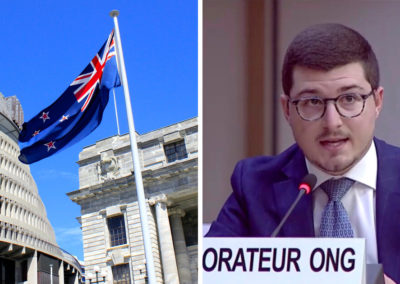A pharmacist who was taken to court because he did not wish to sell the ‘morning-after pill’ has had his conscience rights upheld by a German court.
Andreas K. owned and operated a pharmacy in Berlin which neither stocked nor sold the ‘morning-after pill’.
However, not long before his retirement in 2018, Andreas was reported to the Berlin Pharmacists’ Chamber over his desire to not sell the pill.
The chamber, which has a compulsory membership for every pharmacist in the state, then proceeded to initiate legal proceedings against Andreas at the Administrative Court of Berlin.
In an encouraging ruling, the German court upheld the pharmacists right to act in accordance with his conscience.
According to ADF International, who provided legal support to Andreas’ lawyer, the German court stated that the pharmacist had not neglected his professional duty and had the right to conscientiously object in such a situation.
Felix Böllmann, Legal Counsel for ADF International said: “This is an encouraging decision by the court. It is a clear statement that the pharmacist had the right to act in line with his conscience and did not neglect his professional duty in doing so. The right to freedom of conscience must include the right to act accordingly. A free society relies upon its citizens acting conscientiously.”
The Pharmacists’ Chamber has appealed the decision, which is thought to be the first of its kind in Germany.
In 2015, Spain’s Constitutional Court ruled in favour of a pharmacy that was fined €3,000 for opting not to sell the ‘morning-after pill’ despite a legal requirement to do so.
According to the Telegraph, the court drew a parallel between the morning-after pill and abortion. The court ruled in its sentence that in this case, legally obligating the vendor to sell the product clashed “with the concept advocated by [the pharmacist] regarding the right to life.”












